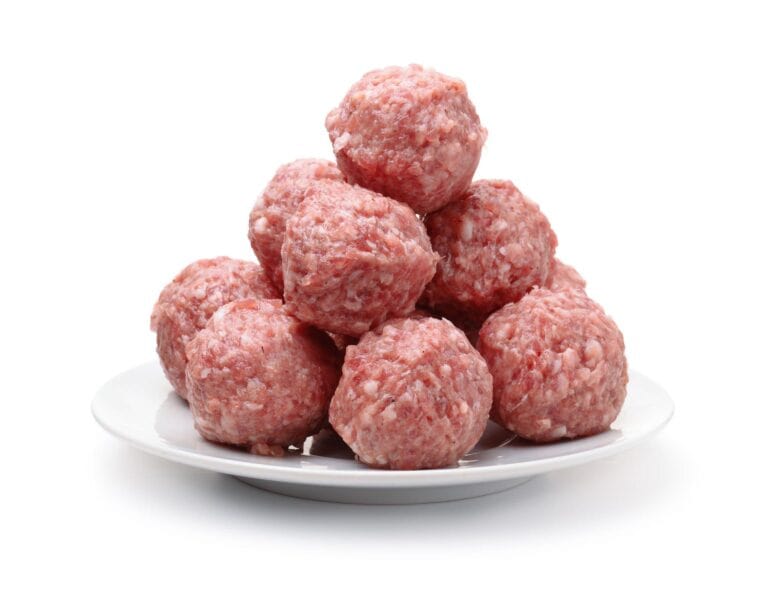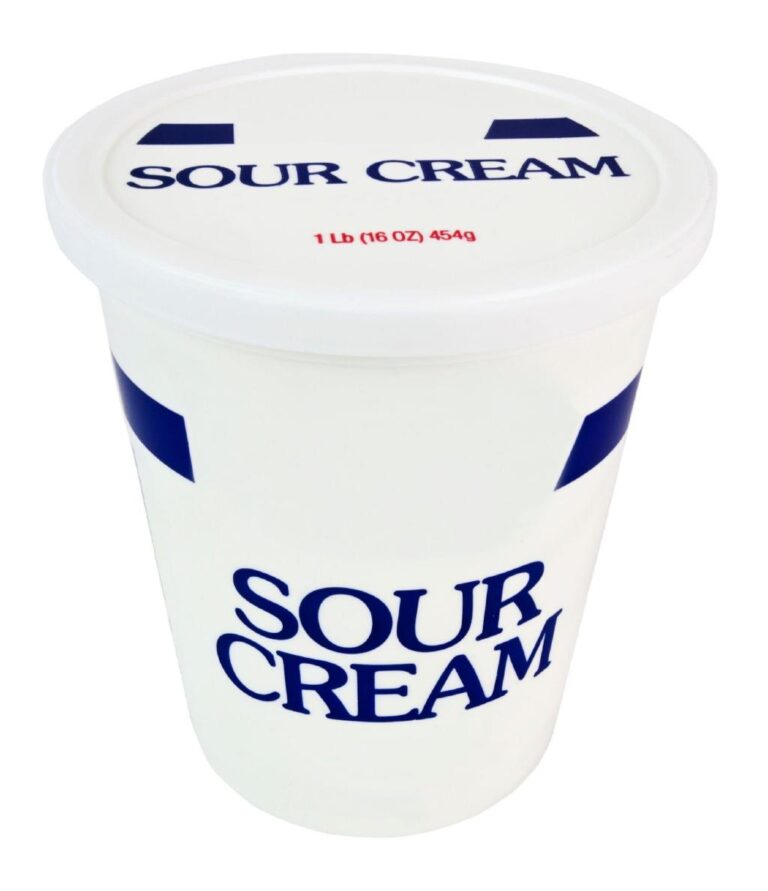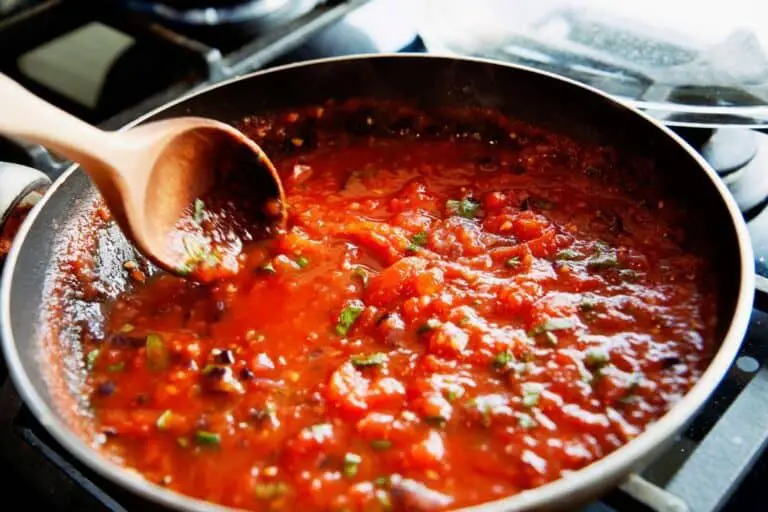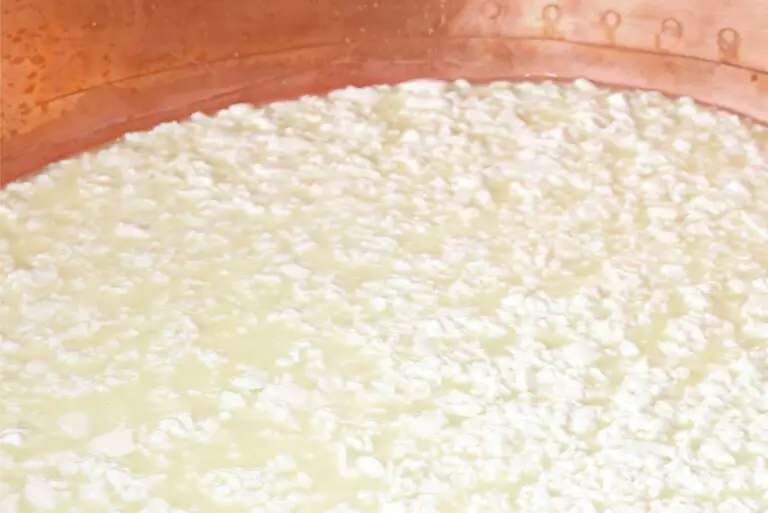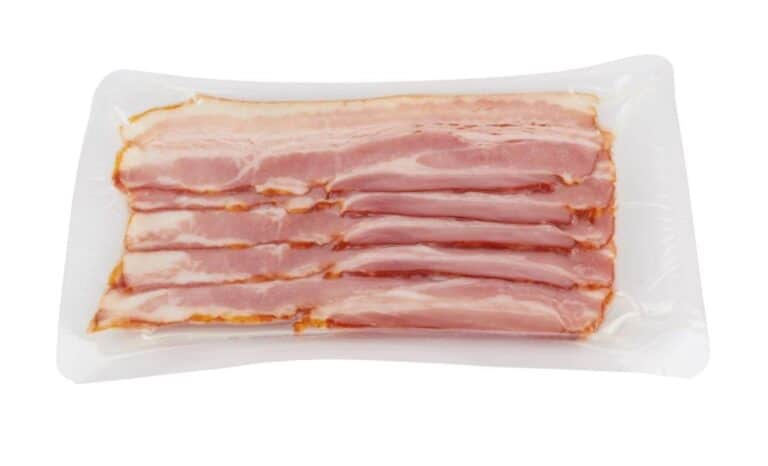Do Canned Beans Have Lectins or Are They Lectin-Free? (Facts You Should Know)
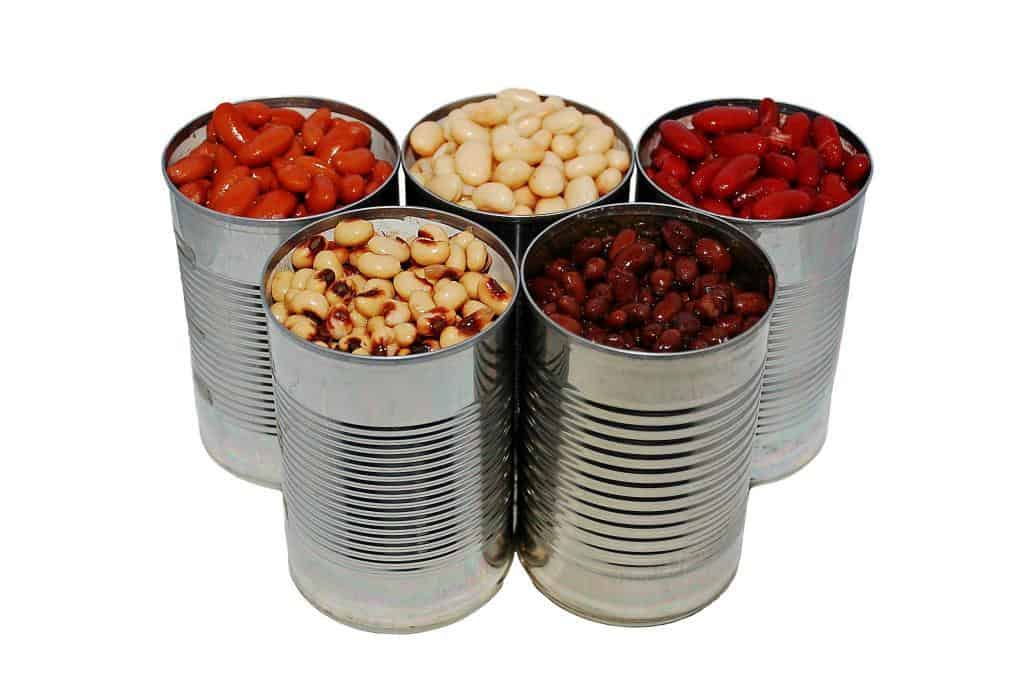
Canned beans are a popular food item because they are a versatile and affordable source of protein. They can be used in a variety of dishes, from salads to soups to casseroles.
Canned beans are also relatively low in calories and fat and are a good source of fiber. However, there are some disadvantages to eating them.
Canned beans tend to be high in sodium and sugar, which can be unhealthy for people with certain medical conditions. Others may have experienced stomach discomfort due to possible lectins inside canned beans.
Do canned beans have lectins, or are they lectin-free? Some types of beans have high levels of lectins that can cause a variety of digestive problems. But different types of beans just contain small amounts that will not cause any discomfort.
In this article, we look at why lectins in canned food can cause problems. In addition to that, there are several cooking methods that are known to reduce or totally wipe out lectins from foods.
What Are Lectins?
Lectins are proteins that can be found in all forms of life, including plants. The term “lectin” refers to proteins that bind to carbohydrates.
They are involved in many biological processes, like how cells stick together, how they talk to each other, and how the immune system works.
Lectins are found in a variety of foods, including grains, legumes, nuts, and seeds. They are also present in some fruits and vegetables, such as strawberries, tomatoes, and potatoes.
Most people are able to consume small amounts of lectins without any ill effects. But people with certain health problems or food allergies may need to stay away from them.
Why Lectins Can Cause Problems
Even though lectins are usually thought to be good, there is some evidence that plant lectins can make people sick. The same properties that lectins use to defend plants in nature may cause digestive issues in humans.
Lectins can’t be broken down by the digestive system, so they pass through the stomach and intestines without being broken down. Once in the blood, they can bind to cells and disrupt normal cellular function.
Below are some problems that can be caused by consuming leptin in humans:
- Lectin can cause diarrhea, stomach upset, nausea, and vomiting.
- Gas and bloating are milder side effects.
- Active lectins can make it harder for the body to absorb minerals, especially calcium, iron, phosphorus, and zinc.
- Leption can lead to inflammation, tissue damage, and a variety of other problems.
Do Canned Beans Have Lectins?
Most people are familiar with the benefits of beans. They are a great source of protein and fiber, and they are low in fat. However, not all beans are created equal. Some types of beans, such as red kidney beans and black beans, are high in lectins.
Canned beans are a great option for those who want to avoid lectins. The cooking process breaks down the lectins, making them safe to eat. Plus, canned beans are already cooked and packed in liquid, so all you need to do is open the can and heat them up.
Canned beans are a quick, easy, and healthy option for those looking to reduce their lectin intake.
Which Beans Have Very High Lectins?
There are many different types of beans, and some contain more lectins than others.
HealWithFood.org looked at the available information and made a chart that divides popular legumes into different groups based on how much lectin they contain.
This will give you a general idea of how much lectin is in different beans. Based on how researchers have defined the lectin level of each variety, the three categories for each bean or legume in the chart are “high,” “high/moderate, or “moderate/low” lectin content.
| Very High | High/Moderate | Moderate/Low |
| Red kidney beans (Phaseolus vulgaris) Black beans (Phaseolus vulgaris L) | White kidney beans (Phaseolus vulgaris) Soybeans (Glycine max) | Rice bean (Phaseolus calcaratus) Cowpea (Vigna sinensis) Broad beans (Vicia faba) Lupin seeds (Lupinus angustifolius) Great Northern beans (Phaseolus vulgaris) Pinto III cultivar (Phaseolus vulgaris) |
How To Remove Lectins From Beans And Legumes?
There are a few ways to reduce the lectin content in beans.
- Soak the beans overnight before cooking to help break down some of the lectins.
- Another way is to cook beans using a pressure cooker or high-heat methods (boiling or stewing). This method can also help to reduce the lectin content.
- Lastly, you can buy beans that have already been cooked or canned and have been treated to make them less lectin-rich.
Are Canned Beans a Healthy Food?

The answer is yes! Canned beans are a healthy and affordable option for adding protein and nutrients to your diet. What you need to know about beans in cans is as follows:
- One cup of cooked beans contains approximately 15 grams of protein and 7 grams of fiber, making beans a fantastic source of protein, fiber, and nutrients.
- Beans are also a good source of iron, potassium, magnesium, and folate.
- Canned beans are also low in calories and fat, and they are a good source of vitamins and minerals.
| When choosing canned beans, look for brands that use BPA-free cans. Canned beans that are simply beans (no added sodium, sugar, or other harmful ingredients) are an excellent healthy food option. |
What To Eat On A Lectin-Free Diet
A lectin-free diet is becoming increasingly popular as people learn more about the role of lectins in the body. Lectins are a type of protein found in all plants, and they’re known to cause inflammation and digestive problems in some people.
While there’s no one-size-fits-all diet for everyone, eliminating foods high in lectins may help some people feel better.
If you’re considering a lectin-free diet, it’s important to know which foods to avoid. Below are some foods or raw foods that are considered to contain low levels of or no lectins.
- Meat (grass-fed)
- Fish and seafood,
- Poultry,
- Sheep and dairy products,
- Cruciferous vegetables,
- Avocado,
- Celery
- Broccoli,
- Sweet Potatoes
- Nuts and seeds
Add them to your daily selection of foods to get the benefits of a lectin-free diet.
Conclusion
Beans are a major source of plant lectins. In fact, beans contain more lectins than any other food.
One of the main advantages of canned beans is that they are already cooked and packed in liquid, which makes them low in lectins.
There are other methods to remove lectins from your diet besides cooking. One method is to soak your food in water overnight. This will help break down the lectins and make them easier to digest.
You can also buy commercially prepared lectin-free foods from some health food stores.

